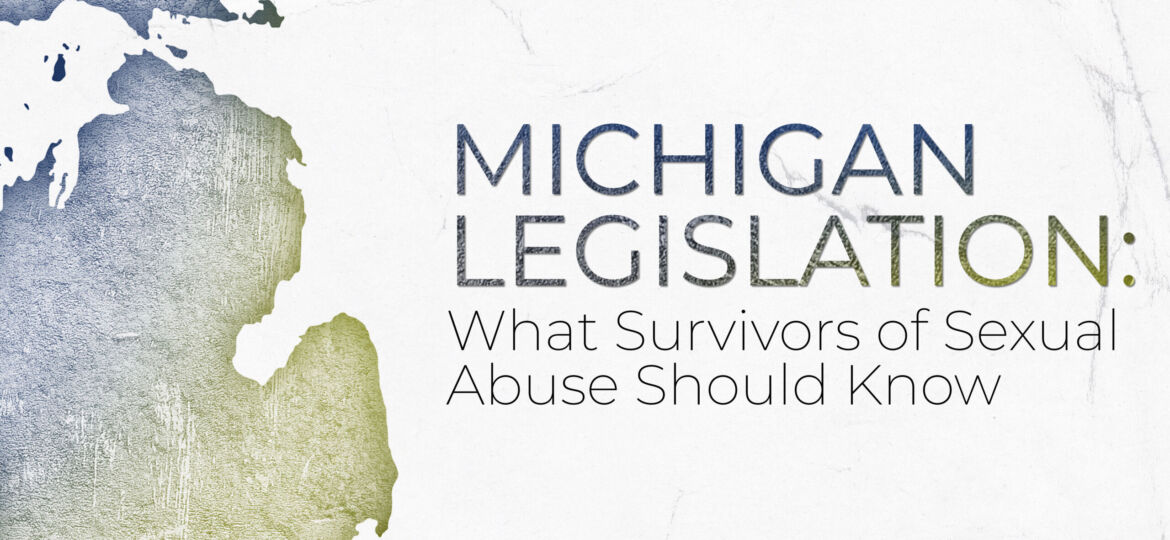Michigan Legislation: What Survivors of Sexual Abuse Should Know
A wave of new bills in the Michigan legislature may finally open the courthouse doors to allow survivors of childhood sexual abuse to seek accountability and justice for the harm they have suffered.
House Bill No. 4482, known as the “Justice for Survivors Package,” was introduced into the Michigan Legislature by Representative Julie Brixie. If enacted, this bill would open a two-year window for survivors of childhood sexual abuse to bring civil claims arising from the sexual abuse, regardless of how long ago the sexual abuse occurred. The bill would also extend the civil statute of limitations and allow survivors of child sexual abuse to come forward until they reach 52 years of age.
To demonstrate the power of civil window legislation in Michigan, Brixie cites the case of former child sports referee Gerald Sutter. The 71-year-old was only recently arrested for abuse that spanned more than 30 years. According to Brixie and Sutter’s survivors, Sutter was not exposed earlier because the criminal and civil statute of limitations had expired. Brixie’s bill hopes to change that.
This is not the first time that legislation like this has been introduced in Lansing. However, since the scandals with USA Gymnastics, Michigan State, and disgraced doctor Larry Nassar, lawmakers have been more receptive to giving survivors more time to come forward. Unfortunately, changing the civil statute of limitations alone may not be enough for many survivors to bring claims in the civil courts.
“You guys have the opportunity here to change the law in our state for the better and to stand with all the survivors on the right side of justice, rather than be with the perpetrators and the institutions who normally allow the abuse to persist,” – Kierra Dallas, survivor
As a result, other bills to help empower survivors and expose those responsible for sexual abuse are making their way through the legislative process. These bills include:
HB 4487: This bill would remove a one-year deadline for survivors to file a civil claim against the state or state agencies for childhood sexual abuse. For example, as the law stands now, if an individual is sexually abused in a state agency, including a public school, the individual must file a claim within 1 year of the sexual abuse. HB 4487 would abolish this one-year deadline and grant survivors of sexual abuse in state agencies the same rights as survivors of sexual abuse in private institutions.
HB 4484: This bill would remove the three-year statute of limitations for criminal sexual conduct claims against the state or a state agency.
HB 4486: This bill would remove immunity that was previously afforded to governmental agencies or employees of governmental agencies. Under the proposed bill, governmental agencies or government employees would not be immune from claims arising from criminal sexual conduct if the governmental agency or a government employee knew or should have known that the perpetrator had committed a prior act of criminal sexual conduct and the governmental agency or employee failed to intervene to prevent the subsequent criminal sexual conduct.
Although past legislative efforts for survivors in the state have failed, public support for victims and outrage against decades of child sexual abuse are turning the tide. If you live in Michigan and want to support survivors of sexual abuse, write to state legislators and voice your support for these survivor-friendly laws.


